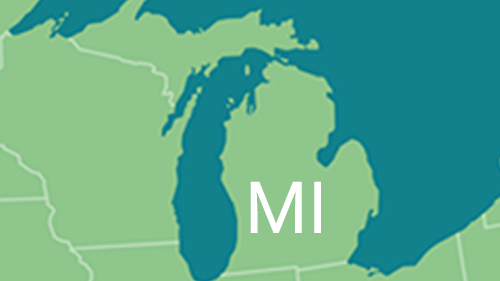
Rebates for Residential EV Chargers in Michigan
Last updated: October 02, 2025
If you own, or are thinking of purchasing, an electric car, something that you had to consider at one point was how you were going to charge it. While Michigan ranks #14 in the US for the number of publicly available EV Chargers, the convenience of being able to charge your electric car at home is hard to beat. These chargers can cost quite a bit though.
Typically, rebates for EV chargers can come multiple sources; your local town, county, electric utility, State or the Federal Government. In Michigan, there are 16 programs that you may be able to use to get a rebate or incentive for installing an EV charger in your home. You can view the programs below.

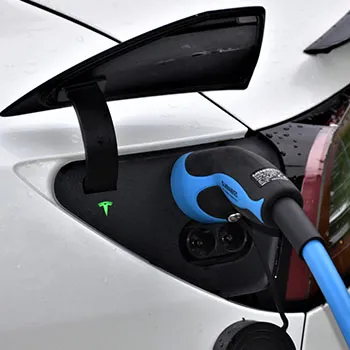
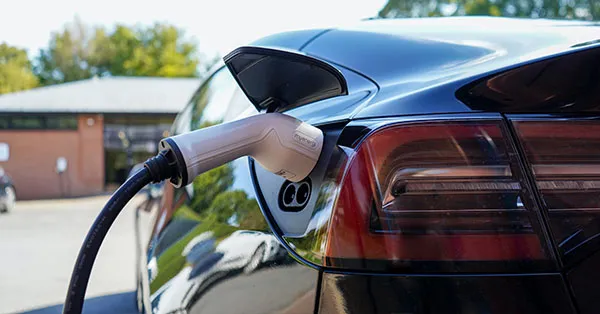
Utility Rebate Programs
15 different utilities in Michigan offer a rebate for residential EV chargers. To get these rebates, you must have an account with the utility providing the rebate.
Consumers Energy - MI
Consumers Energy - MI has a program called "Consumers Energy PowerMIDrive Residential Program" that offers rebates for EV Chargers installed in residences.The Consumers Energy PowerMIDrive Residential Program program offers a rebate of $10 - 1,000 per charger. The incentive may cover up to 100% of the project cost. The rebate program covers Level 2 EV chargers. Charging station must be networked.
Go to Consumers Energy - MI Website
Holland BPW - MI
Holland BPW - MI offers rebates for residential EV chargers through a program called "Charge Up Holland." The program is currently open with an expected end date of December 31st 2025. However, keep in mind; the program may close sooner if its budget is depleted before the deadline.The Charge Up Holland program offers a rebate of $300 per charger. The incentive may cover up to 100% of the material cost. The rebate program covers Level 2 EV chargers.
Go to Holland BPW - MI Website
Lansing Board of Water and Light - MI
Lansing Board of Water and Light - MI offers rebates for residential EV chargers through a program called "Lansing BWL EV Chargers."The Lansing BWL EV Chargers program offers a rebate of $500 - 1,000 per charger. The incentive may cover up to 100% of the project cost. The rebate program covers Level 2 EV chargers.
Go to Lansing Board of Water and Light - MI Website
Detroit Edison - MI
Detroit Edison - MI has a rebate program that covers residential EV chargers. The program is called "DTE Charging Forward Residential." The program is currently open with an expected end date of December 31st 2025. However, keep in mind; the program may close sooner if its budget is depleted before the deadline.The incentive may cover up to 100% of the project cost. The rebate program covers Level 2 EV chargers.
Go to Detroit Edison - MI Website
Indiana Michigan Power - MI
Customers of Indiana Michigan Power - MI can qualify for rebates for residential EV chargers through their program called "IMP Charge at Home MI."The IMP Charge at Home MI program offers a rebate of $500 per charger. The incentive may cover up to 100% of the material cost. The rebate program covers Level 2 EV chargers.
Go to Indiana Michigan Power - MI Website
HomeWorks Tri-County Electric Cooperative - MI
Customers of HomeWorks Tri-County Electric Cooperative - MI can qualify for rebates for residential EV chargers through their program called "HomeWorks EVs." The program is currently open with an expected end date of December 31st 2025. However, keep in mind; the program may close sooner if its budget is depleted before the deadline.The HomeWorks EVs program offers a rebate of $600 per charger. The incentive may cover up to 100% of the project cost. The rebate program covers Level 2 EV chargers. Charging station must be networked.
Go to HomeWorks Tri-County Electric Cooperative - MI Website
Great Lakes Energy - MI
Customers of Great Lakes Energy - MI can qualify for rebates for residential EV chargers through their program called "Great Lakes Energy EV Chargers." The program is currently open with an expected end date of December 31st 2025. However, keep in mind; the program may close sooner if its budget is depleted before the deadline.The Great Lakes Energy EV Chargers program offers a rebate of $800 per charger. The incentive may cover up to 100% of the material cost. The rebate program covers Level 2 EV chargers. Charging station must be networked.
Go to Great Lakes Energy - MI Website
Cherryland Electric Cop - MI
Customers of Cherryland Electric Cop - MI can qualify for rebates for residential EV chargers through their program called "Cherryland EVs." The program is currently open with an expected end date of December 31st 2025. However, keep in mind; the program may close sooner if its budget is depleted before the deadline.The Cherryland EVs program offers a rebate of $500 per charger. The incentive may cover up to 100% of the material cost. The rebate program covers Level 2 EV chargers. Charging station must be networked.
Go to Cherryland Electric Cop - MI Website
UP Energy Innovations Collaborative
UP Energy Innovations Collaborative has a rebate program that covers residential EV chargers. The program is called "UPEIC Energy Innovations Collaborative." The program is currently open with an expected end date of December 31st 2025. However, keep in mind; the program may close sooner if its budget is depleted before the deadline.The incentive may cover up to 50% of the project cost. The rebate program covers Level 2 EV chargers.
Go to UP Energy Innovations Collaborative Website
Consumers Energy - MI
Consumers Energy - MI offers rebates for residential EV chargers through a program called "Consumers Energy PowerMIDrive Residential Program."The Consumers Energy PowerMIDrive Residential Program program offers a rebate of $10 - 1,000 per charger. The incentive may cover up to 100% of the project cost. The rebate program covers Level 2 EV chargers. Charging station must be networked.
Go to Consumers Energy - MI Website
Presque Isle Electric & Gas Co-op - MI
Presque Isle Electric & Gas Co-op - MI offers rebates for residential EV chargers through a program called "PIEG EVs." The program is currently open with an expected end date of December 31st 2025. However, keep in mind; the program may close sooner if its budget is depleted before the deadline.The PIEG EVs program offers a rebate of $600 per charger. The incentive may cover up to 100% of the project cost. The rebate program covers Level 2 EV chargers. Charging station must be networked.
Go to Presque Isle Electric & Gas Co-op - MI Website
City of Escanaba - MI
City of Escanaba - MI has a program called "Escanaba EV Chargers" that offers rebates for EV Chargers installed in residences. The program is currently open with an expected end date of December 31st 2025. However, keep in mind; the program may close sooner if its budget is depleted before the deadline.The Escanaba EV Chargers program offers a rebate of $250 per charger. The incentive may cover up to 100% of the project cost. The rebate program covers Level 2 EV chargers.
Go to City of Escanaba - MI Website
Cloverland Electric Cooperative - MI
Customers of Cloverland Electric Cooperative - MI can qualify for rebates for residential EV chargers through their program called "Cloverland Electric Co-op EV Chargers." The program is currently open with an expected end date of December 31st 2025. However, keep in mind; the program may close sooner if its budget is depleted before the deadline.The incentive may cover up to 75% of the project cost. The rebate program covers Level 2 EV chargers.
Go to Cloverland Electric Cooperative - MI Website
Lansing Board of Water and Light - MI
Lansing Board of Water and Light - MI offers rebates for residential EV chargers through a program called "Lansing BWL EV Chargers."The Lansing BWL EV Chargers program offers a rebate of $500 - 1,000 per charger. The incentive may cover up to 100% of the project cost. The rebate program covers Level 2 EV chargers.
Go to Lansing Board of Water and Light - MI Website
Consumers Energy - MI
Consumers Energy - MI has a program called "Consumers Energy PowerMIDrive Residential Program" that offers rebates for EV Chargers installed in residences.The Consumers Energy PowerMIDrive Residential Program program offers a rebate of $10 - 1,000 per charger. The incentive may cover up to 100% of the project cost. The rebate program covers Level 2 EV chargers. Charging station must be networked.
Go to Consumers Energy - MI Website
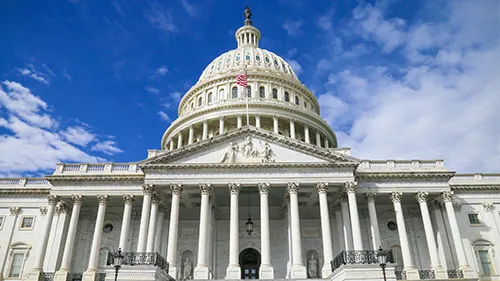
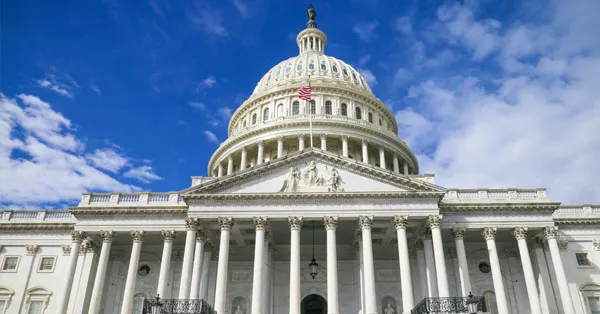
Federal Tax Incentive
The Federal Goverment has a tax credit for installing residential EV chargers. Commonly referred to as the 30C Federal Tax Credit, this incentive offers 30% of the cost of installing an EV Chargers up to $1,000.When the tax credit was renewed in 2022, a new stipulation was added that in order to receive the tax credit, the property must be located in an approved census tract. This requirement applies to any installations completed after December 31, 2022.
Learn more about the Federal Tax Credit
What is the difference between the types of EV chargers?
A Level 1 EV Charger plugs into a standard out in your home (120V) to juice up your car. Usually, a level one charger can add 2 to 3 miles to your car for each hour they're used. Most electric vehicles in the US will come with a Level 1 charger.
A Level 2 EV charger lets you charge up your electric vehicle much around five times faster. These chargers use 240V or the type of outlet you see for an electric dryer or stovetop. They add between 12 and 60 miles to your battery each hour.
A Level 3 EV charger is the fastest type of EV charger. They're also called fast chargers, DCFC chargers, and DC fast chargers. These units typically use 400V or more and add 150 miles to a battery in an hour. They're not very common in residential applications at this point.
Learn more about the types of EV Chargers
How much does an EV charger cost?
The cost of an EV charger can vary depending on the specific type you want to purchase. They usually range from $300 - 1,000. It's important to remember that Level 2 and Level 3 chargers typically require professional installation, which often costs more than the charger itself. You can see examples of chargers below:
Do businesses qualify for this EV charger rebate?
Businesses, non-profits, and multi-family facilities are considered commercial accounts by many utilities. Commercial accounts have different rebate programs to use than residential accounts. Rebates4EVChargers only shows residential rebates.
Additional information
How Long Will it Take to Charge my Electric Car?
How long will it take to charge your electric car? See the 5 main factors that determine how quickly it'll recharge.
Continue reading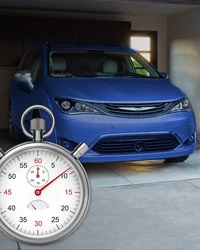
Federal Tax Credit for EV Chargers Renewed
The Inflation Reduction Act just extended the 30C Tax Credit for installing EV chargers. Homeowners get a credit for up to 30% of the cost up to $1,000.
Continue reading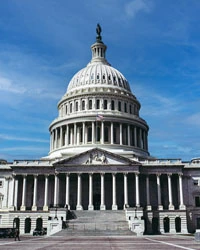
Disclaimer: The information above is provided as an informational resource. Rebates4EVChargers does not provide any warranties or representations as to, and will not be responsible for, the accuracy or correctness of the rebate information. Contact your rebate provider for the most current information. As an Amazon Associate, Rebates4EVChargers may earn commissions from qualifying purchases.